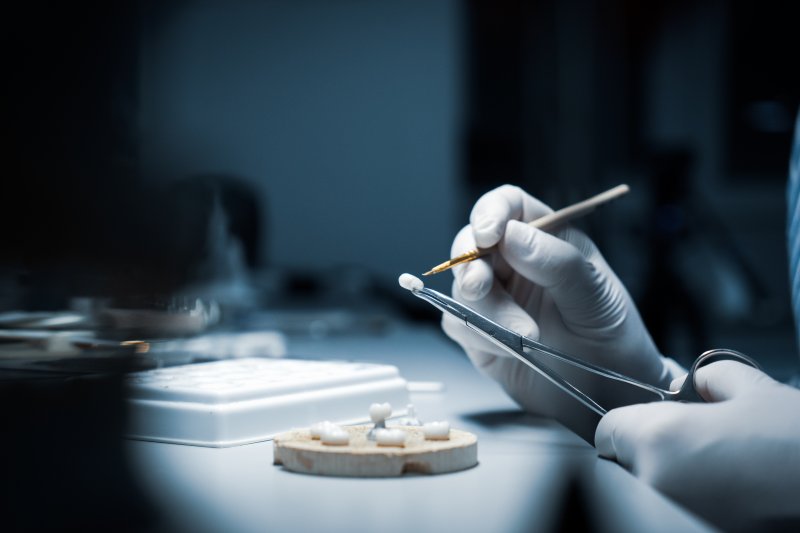What Should You Do After Getting a Dental Crown?
July 21, 2022

When it comes to getting a dental crown, you might already know a little of what to expect. For one thing, you may have learned that the crowning process takes two appointments. Your treatment will remove some enamel during the first one to make room for the crown. After a few weeks, you’ll return for the second visit and receive the finished restoration. However, do you know what’s involved in the recovery process? If not, your Richardson dentist can help. Read on to learn what you should expect for dental crown aftercare.
What to Do for Your Temporary Crown
Generally, those who need a dental crown will get a temporary crown to protect the prepared tooth between appointments. While you’re wearing it, you should practice the following recommendations:
- Avoid sticky or chewy foods. (These could dislodge the temporary crown.)
- Don’t eat hard foods. (Hard things could break the crown.)
- Chew most foods on the mouth-side opposite the temporary crown.
- Don’t floss next to the temporary crown. (At the very least, slide the floss rather than lift it out.)
What to Do for Your Permanent Crown
Once you turn in your temporary crown, your dentist will then place the permanent one. You’ll likely do these two things after getting the latter.
Manage Numbness
If you receive anesthetics as part of your crown placement, your mouth will be numb for a few hours afterward. You’ll want to avoid drinking hot liquids or hard foods during this time. Otherwise, you risk burning or biting yourself since you can’t feel warning sensations like heat or pain.
At the same time, you may notice some bruising or inflammation at the anesthetic injection site. Don’t worry, as these signs will go away in several days.
Treat Discomfort
You’ll probably experience pain or discomfort in the affected area once the numbness wears off. Fortunately, those symptoms will fade after just a few days or weeks.
In the meantime, you may want to use over-the-counter medicines for pain relief. For example, ibuprofen is good for reducing crown-related pain and making you feel more comfortable.
If your soreness is severe or continues beyond several weeks, you should seek treatment at once.
To have a successful dental crown, you must know how to handle yourself post-treatment. Fortunately, that’s easy enough when you learn the tips and expectations above!
About the Author
Dr. Hamid Mirsepasi is a dentist based in Richardson, TX, having graduated from the Rutgers University Dental School. He specializes as a prosthodontist and is well-versed in implants, dentures, crowns, and bridges. However, his skill also covers preventive and cosmetic dentistry to ensure patients have beautiful and functional smiles. Whether you need a checkup or a dental implant, he’ll give you quality results. Dr. Mirsepasi currently practices at HM Dentistry and can be reached at his website or by phone at (972)-231-5744.
No Comments
No comments yet.
RSS feed for comments on this post.
Sorry, the comment form is closed at this time.
